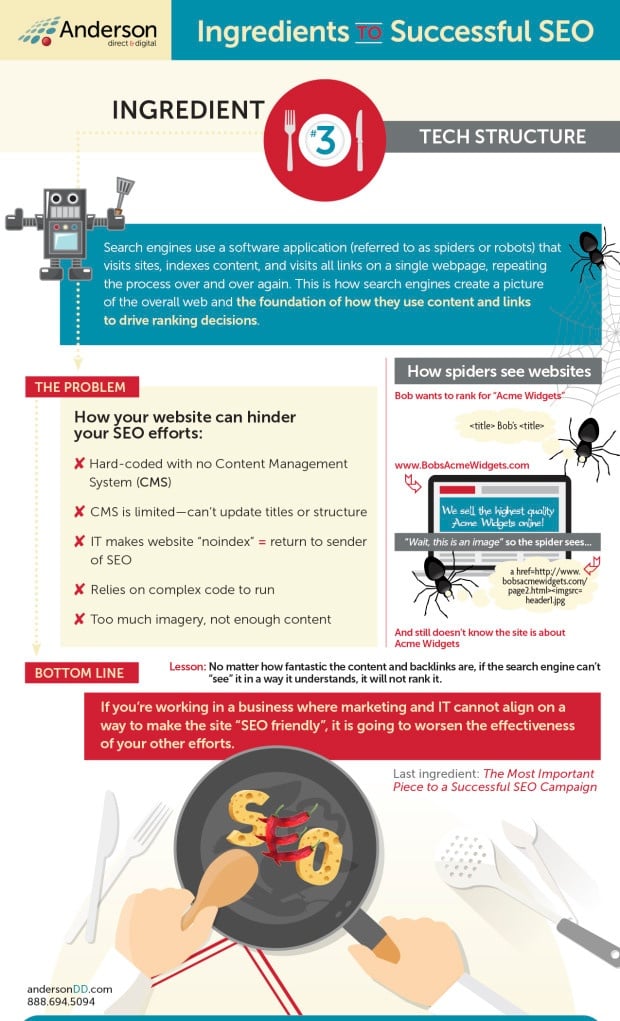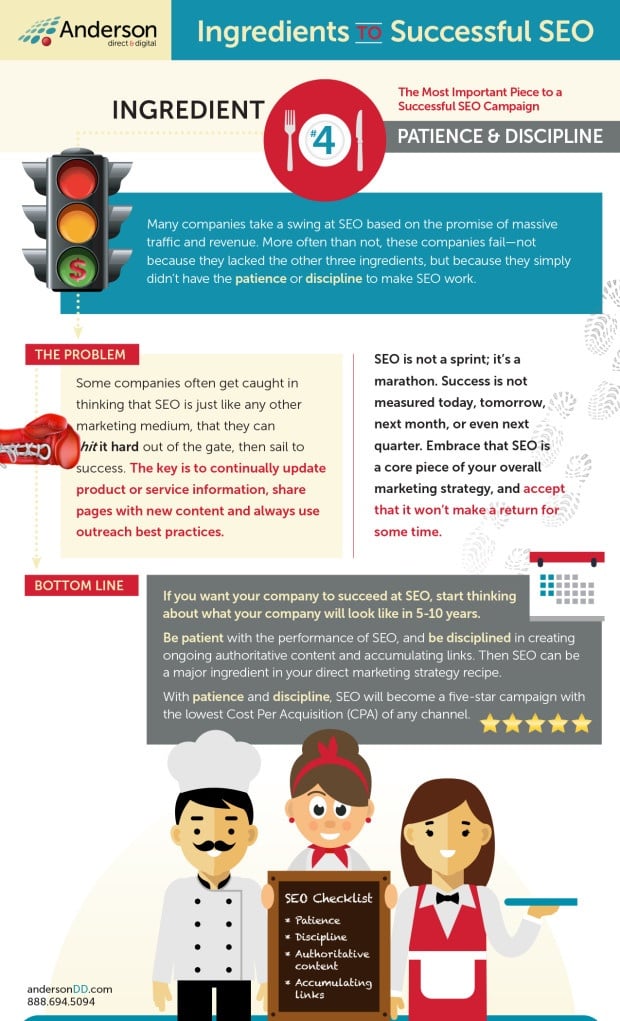In the past few weeks we’ve gone into detail about each of the major facets that impact your natural search rankings and traffic. We’ve discussed the need for content to be robust and authoritative, how that content then attracts high quality inbound links to your site, and finally covered why the technical structure of your site needs to be transparent to search engines. (In case you missed last week's post on the third ingredient, you can read about it here).
The final ingredient to success with SEO we’re going to share to wrap up this series is the most important.
Ingredient 4: Patience and discipline
Through the years I’ve seen many companies and clients take a swing at SEO based on the promise of massive traffic and revenue to the company. More often than not, these companies have failed. Not because they couldn’t create great content, not because they couldn’t attract links, and not because of technical issues with their site.
They simply didn’t have the patience or discipline to make SEO work.
In a previous post I mentioned that at Anderson Direct & Digital, we advise clients that SEO is not a sprint, it’s a marathon. Success is not measured today, tomorrow, next month, or even next quarter. If you want to succeed with SEO, you have to commit to it for the long term, and accept that you’re not going to see a positive ROI in year one or even year two. You have to embrace that SEO is a core piece of your overall marketing strategy and accept that it won’t make a return for some time.
That’s very difficult for the direct marketer part of me to say. My career is based on helping clients invest their budgets into marketing campaigns that make huge returns. But it’s the truth.
More often than not, companies get caught in thinking that SEO is just like any other marketing medium, that they can hit it hard out of the gate then sail to success. These are the companies that launch a blog and do a great job for a few months, but then, after the novelty has worn off, they start posting less often and with lower quality content. They don’t update their product or information-sharing pages with new info; they stop incorporating link outreach best practices.
If you want your company to succeed at SEO, you need to start thinking about what your company will look like in 5-10 years. If you’ve been patient with the performance of SEO, if you’ve been disciplined in creating ongoing authoritative content and accumulating links, that’s when SEO can be one of the major parts of your direct marketing strategy. That’s when it will become a rock star campaign with the lowest Cost Per Acquisition (CPA) of any channel—that’s something we’ve seen with our most successful clients, and it’s something that is within reach for those companies just starting out with SEO.
So, what are you waiting for?






